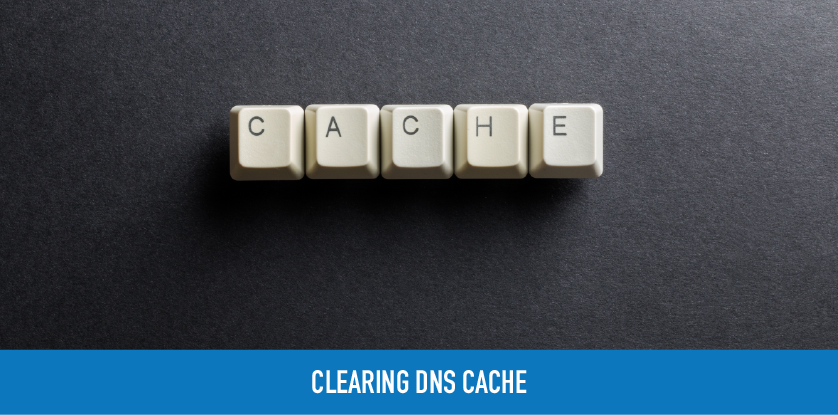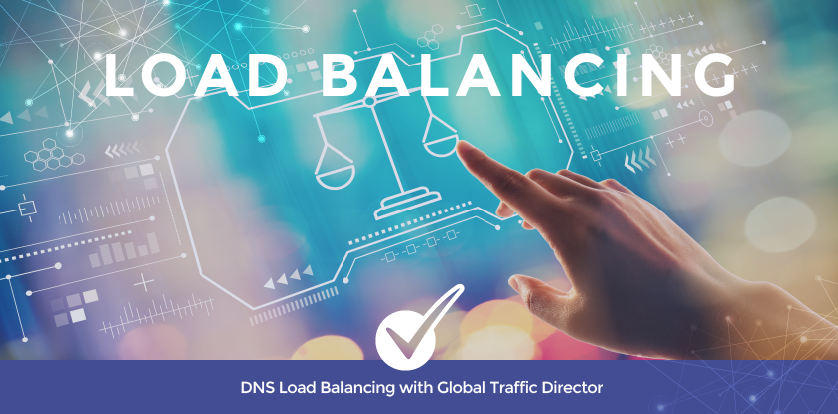
Resources:

Categories:
Book a Free Demo →
Want DNS Freebies?
Give us your email and we'll send you the good stuff.

Categories:
When it comes to DNS, there's nothing we love more - except DNS management. And maybe Secondary DNS. Or Failover. Even anomaly detection. Oh who are we kidding, if it's even remotely close to the topic of DNS, we got you covered!
Are we learning from the past? At what point should others take accountability for their actions? When do we stop the cycle that has failed us and try a new approach?
The move to the cloud started back in 2006. That was when AWS first started offering IT infrastructure services to other businesses. Over the ten years that followed, it was a prominent strategy for companies to continue this “move to the cloud” shift. In fact, CxO careers were created around the whole notion that “we are moving to the cloud.” More than a dozen CxO positions were established to proceed with this initiative, including CIO, CMO, CCO, CAO, among others. These conceived titles are collectively called CxOs (Chief Experience Officers).

Top Fallacies of Moving to the Cloud
Some of the top reasons why companies moved to the cloud include:
- Save time – Time is saved because there is no need to deploy, maintain, and fix hardware, however ongoing cost and performance management is not accounted for as part of this venture.
- Cost savings – This goes hand in hand with saving time, because when you save time, you essentially save money. It was also believed that you are only pay for services that you need – although this was not necessarily the way they were being used.
- Increased uptime – uptime management is a necessity when working with cloud services. This is highly dependent on the DNS provider that is being utilized to run the service.
- Higher performance – speed is a crucial aspect of cloud services. So performance should be of utmost importance.
Moving to the Cloud Is Now a De facto Standard
Many of the CxOs or IT departments make this “move to the cloud” without understanding the full importance surrounding what or why the move should be made. Without proper planning, there is actually no “cost savings,” and in reality, you end up paying more.

There seems to be a shared belief amongst this profession that if others are moving to the cloud as their infrastructure solution, their jobs can’t be replaced if something breaks or outages happen along the way. This was the defacto standard that all companies replicated, and if you wanted to break away from that mold to try something new, you were considered to be a trail-blazer and a risk-taker.
At DNS Made Easy and Constellix, we have serviced millions of domains over the past 19 years. Many of the largest brands on the Internet have used our services at some point, as they required enterprise DNS services to help grow their brands. One thing that the majority of these companies have stated is that the “savings” that many were supposed to receive turned out to be quite the opposite. In fact, in a survey we did with DNS Made Easy and Constelix users, 93% actually stated that the “move to the cloud did not save money.”
Moving to the Cloud Doesn’t Prevent Outages
So, this begs the question: If companies aren’t saving money and experiencing the benefits that led them to move to the cloud in the first place, why are they accepting subpar service? In fact, one could argue that moving to the cloud with only one provider ends up having the opposite effect of the supposed perks.
For instance, several companies experienced outages right before Thanksgiving—one of the busiest times of the year—because Amazon Web Services went down. This isn’t the first time AWS has had a major outage, nor are they the only cloud provider known to have these issues.
When is enough enough?
Why are outages tolerated or accepted as just a part of doing business in the cloud? At what point will companies start learning from the mistakes of the past?
The History of DNS Redundancy and Failover
In the late 1990s the move to distributed and redundant systems was considered the “best practice.” Email and DNS servers were configured to be distributed across multiple locations.
Web servers started implementing features like DNS failover in the early 2000s to increase the uptime of their websites and services. It was common knowledge that redundancy was needed for an optimal online experience for businesses and end users alike.

But this all changed around 2006, when cloud services were introduced to the market.
By the time 2010 rolled around, the expression “well, if <insert cloud="" provider="" name="" here=""> goes down, so will many other websites” became so common it was just accepted as point of fact, when in truth, outages could be avoided entirely. </insert>
Who will be the catalyst in your organization to demand a higher standard from your DNS and cloud providers? Are your services mission critical? When will you insist on 100% uptime all the time instead of accepting 100% uptime most of the time?
The Truth Is, Cloud Outages Can Be Prevented
If you have suffered from a single cloud provider outage in the last 24 months and have not researched ways to increase your uptime, what will it take?
Holding providers to a higher standard isn’t the only thing needed to evoke positive change within the DNS and cloud service industry. As more and more business is conducted online, increased accountability needs to be seen throughout the online industry. CxOs and their IT staff need to start taking responsibility for uptime.
Internet usage has been increasing exponentially since the internet’s inception but has seen a dramatic increase in 2020 due to the COVID-19 pandemic and shows no signs of slowing down. End users are depending on online websites and services for nearly everything—including work, education, staying connected with loved ones, and even home security. Any downtime right now is unacceptable, especially since there are simple, cost-effective ways to prevent it.
Still, many large e-commerce companies were once again surprised last Wednesday when AWS had a significant cloud outage.Companies invested hundreds of thousands of dollars into early holiday promotions for their services and products and were completely down on one of the days that mattered most! Millions of advertising and marketing dollars were collectively wasted once again by companies who put all of their eggs in one basket, and because of the lack of accountability within IT departments.
It’s Time For Change Within the DNS and Cloud Industries
In a day and age where online activities are a necessity instead of a luxury, the all-in-one approach just isn’t working anymore, and organizations are starting to see it.
As the saying goes, everything comes back full circle. What worked best 20 years ago still proves strong today—redundancy and failover are key in preventing outages—especially in our current online environment. Many companies have implemented or are considering multi-cloud solutions for this very reason. Since we’ve embraced the move to the cloud, isn’t it time we also embrace multi-cloud solutions that will be a benefit to both companies and end users alike?
Now that we’re approaching the end of 2020, I personally challenge you to reflect on your current DNS and cloud strategy. Will we continue making the same mistakes? Or will we welcome positive change within the industry in 2021? Only time will tell.

Need better DNS?
We can help.
• Configure with ease
• Prevent DDoS attacks
• Monitor your domains
• Optimize site traffic
• Enhance domain performance
• Free POC Account + Demo
BOOK FREE DEMO
Constellix DNS News
Sign up for industry news and insights. It'll be worth it.
Sign up for news and offers from Constellix and DNS Made Easy














